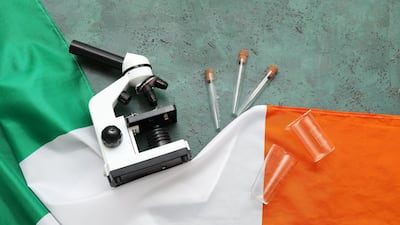With EU MDR/IVDR review proposals out, UK MHRA progress on a premarket regulation and, up ahead, a prospective consultation on accepting the CE marking indefinitely, now is a good time to assess EU-UK regulatory positions for the benefit of UK industry, says ABHI director Steve Lee.
The US FDA has published its annual international harmonization assessment for fiscal 2025, which reports on the device center’s progress in aligning medical device regulations with global standards to improve patient access to safe, innovative technologies.
Medtech Insight was invited to moderate a panel discussion with leading experts in neuroscience and AI during INBRAIN’s five-year anniversary in Barcelona, Spain. Panelists discussed the promises, perils in BCI development, neuroethics and outlook.
Cardiovascular disease is moving to the top of the EU’s health agenda with the release of the Safe Hearts Plan, European Parliament scrutiny of which is expected at the end of Q1. Medical device companies applaud the initiative but will seek more input as the plan evolves.
If medtech regulation is to work for patients, industry and society, Europe must move from political positioning to evidence-driven policymaking. It is time to avoid repeating the self-destructive cycle.
AI promises to be the much-needed solution to the now overly complex field of EU medtech regulatory affairs. Will every stakeholder start using solutions such as Raiana?
EIT Health has helped 3,000 start-ups and SMEs scale across Europe and supported over 120 innovations to launch. Inspired by the US MIT, the EIT Health program is on a mission to raise awareness of its value to healthtech innovators as it embarks on new methods of funding its own activities.
The European Commission’s proposal does not envisage a single centralized medtech agency, but instead sets out a targeted redistribution of tasks that could strengthen the existing framework. Professor Tom Melvin told Medtech Insight how.
Abbott’s newly CE-marked TactiFlex Duo dual-ablation catheter used for treating AFib is competing against products already introduced by Boston Scientific, J&J and Medtronic.
Seven new healthcare laws will be started in Germany 2026, and seven already underway – including the revamped KHAG hospital and DRGs reform law – will be completed. So goes the ministerial promise early in the new year. Medtechs signal further references to the so-far useful government dialog.
Could the understaffing that has weighted down EU’s medtech regulators become a thing of the past?
European Commission-sponsored study published in December reveals the full impact of soaring compliance costs, shrinking device portfolios and innovation shifting abroad.
The UK MHRA will soon consult on allowing CE-marked devices indefinite access to the Great Britain market. Meanwhile, the EU has at last moved to make the MDR/IVDR more user friendly. Taylor Wessing partner Alison Dennis reflects on how these events could influence evolving UK medtech legislation.
The EU's medtech regulatory landscape is shifting, influenced by the Commission's proposed changes. Experts note opportunities and concerns emerging from these reforms, highlighting the need for transparency, efficiency, and adaptability to new technologies by 2026.
Proposal Gives Unrealistic Timelines And Reflects Poor Grasp Of Notified Body Realities
The UK health care products regulatory agency is inviting industry to share its views on how artificial intelligence in health care should be regulated, with input set to shape future rules and guidance.
Last year was a busy one for the medtech industry, with major advances in technology as well as big changes at regulatory agencies. Get a peek at the stories our readers couldn't miss.
There are many unworkable suggestions in the European Commission’s proposed overhaul of how notified bodies operate, TEAM-NB’s document states
Ireland's medtech ecosystem continues to flourish, with more than 50,000 employees across 700 companies. The sector set a venture capital record in 2024 and is on pace to match or exceed it this year.
A forward-looking view of prospects for regulatory and market access improvement from the UK’s biggest medtech industry lobby group, the Association of British HealthTech Industries (ABHI).




















